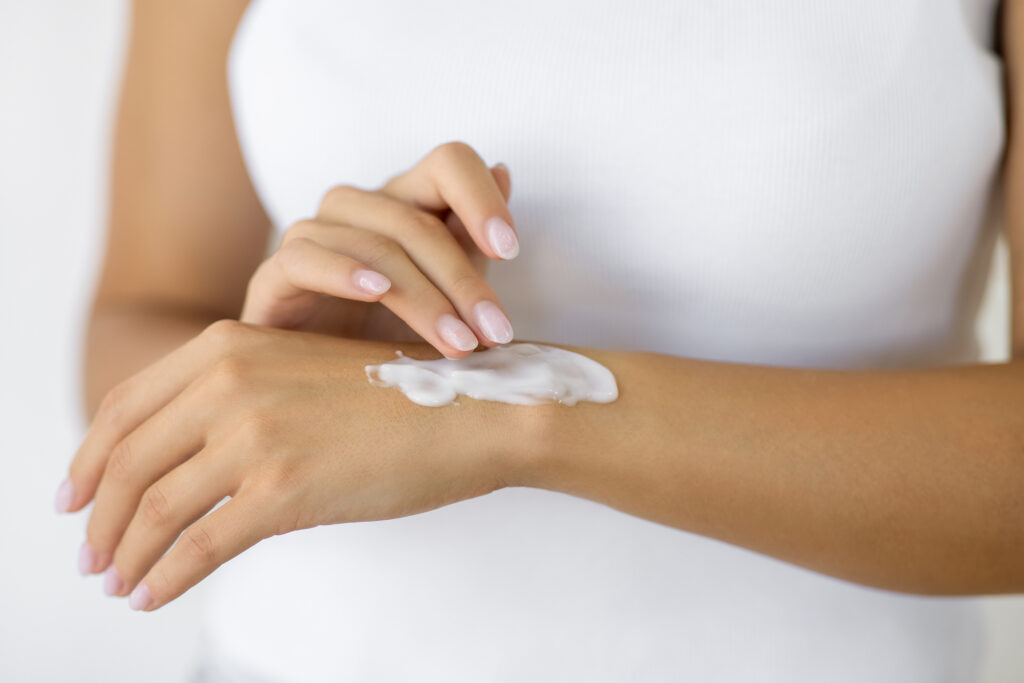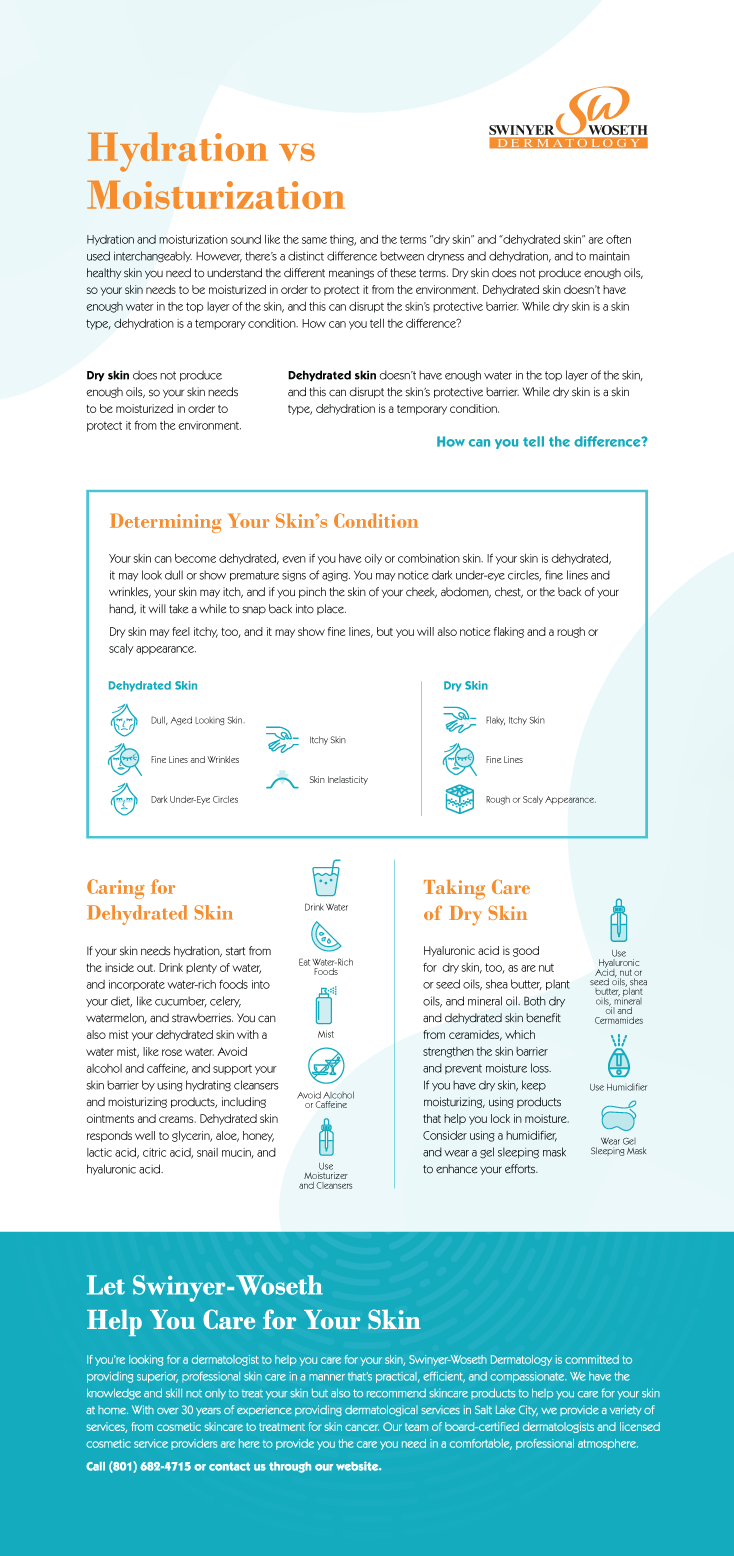Is Your Skin Dry or Is It Dehydrated?

Hydration vs Moisturization
Hydration and moisturization sound like the same thing, and the terms “dry skin” and “dehydrated skin” are often used interchangeably. However, there’s a distinct difference between dryness and dehydration, and to maintain healthy skin you need to understand the different meanings of these terms. Dry skin does not produce enough oils, so your skin needs to be moisturized in order to protect it from the environment. Dehydrated skin doesn’t have enough water in the top layer of the skin, and this can disrupt the skin’s protective barrier. While dry skin is a skin type, dehydration is a temporary condition. How can you tell the difference?
Determining Your Skin’s Condition
Your skin can become dehydrated, even if you have oily or combination skin. If your skin is dehydrated, it may look dull or show premature signs of aging. You may notice dark under-eye circles, fine lines and wrinkles, your skin may itch, and if you pinch the skin of your cheek, abdomen, chest, or the back of your hand, it will take a while to snap back into place. Dry skin may feel itchy, too, and it may show fine lines, but you will also notice flaking and a rough or scaly appearance.
Caring for Dehydrated Skin
If your skin needs hydration, start from the inside out. Drink plenty of water, and incorporate water-rich foods into your diet, like cucumber, celery, watermelon, and strawberries. You can also mist your dehydrated skin with a water mist, like rose water. Avoid alcohol and caffeine, and support your skin barrier by using hydrating cleansers and moisturizing products, including ointments and creams. Dehydrated skin responds well to glycerin, aloe, honey, lactic acid, citric acid, snail mucin, and hyaluronic acid.
Taking Care of Dry Skin
Hyaluronic acid is good for dry skin, too, as are nut or seed oils, shea butter, plant oils, and mineral oil. Both dry and dehydrated skin benefit from ceramides, which strengthen the skin barrier and prevent moisture loss. If you have dry skin, keep moisturizing, using products that help you lock in moisture. Consider using a humidifier, and wear a gel sleeping mask to enhance your efforts.
Let Swinyer-Woseth Help You Care for Your Skin
If you’re looking for a dermatologist to help you care for your skin, Swinyer-Woseth Dermatology is committed to providing superior, professional skin care in a manner that’s practical, efficient, and compassionate. We have the knowledge and skill not only to treat your skin but also to recommend skincare products to help you care for your skin at home. With over 30 years of experience providing dermatological services in Salt Lake City, we provide a variety of services, from cosmetic skincare to treatment for skin cancer. Our team of board-certified dermatologists and licensed cosmetic service providers are here to provide you the care you need in a comfortable, professional atmosphere. Call (801) 682-4715 or contact us through our website.

